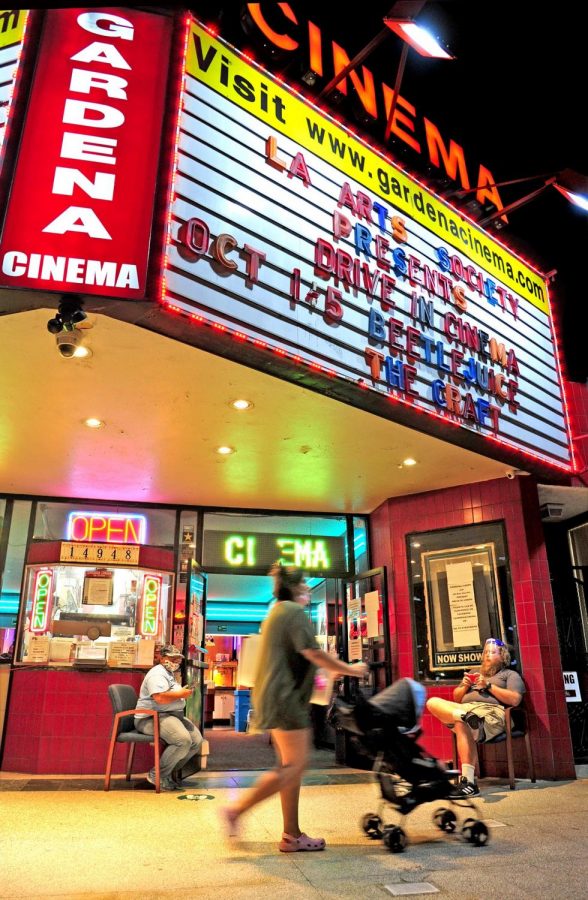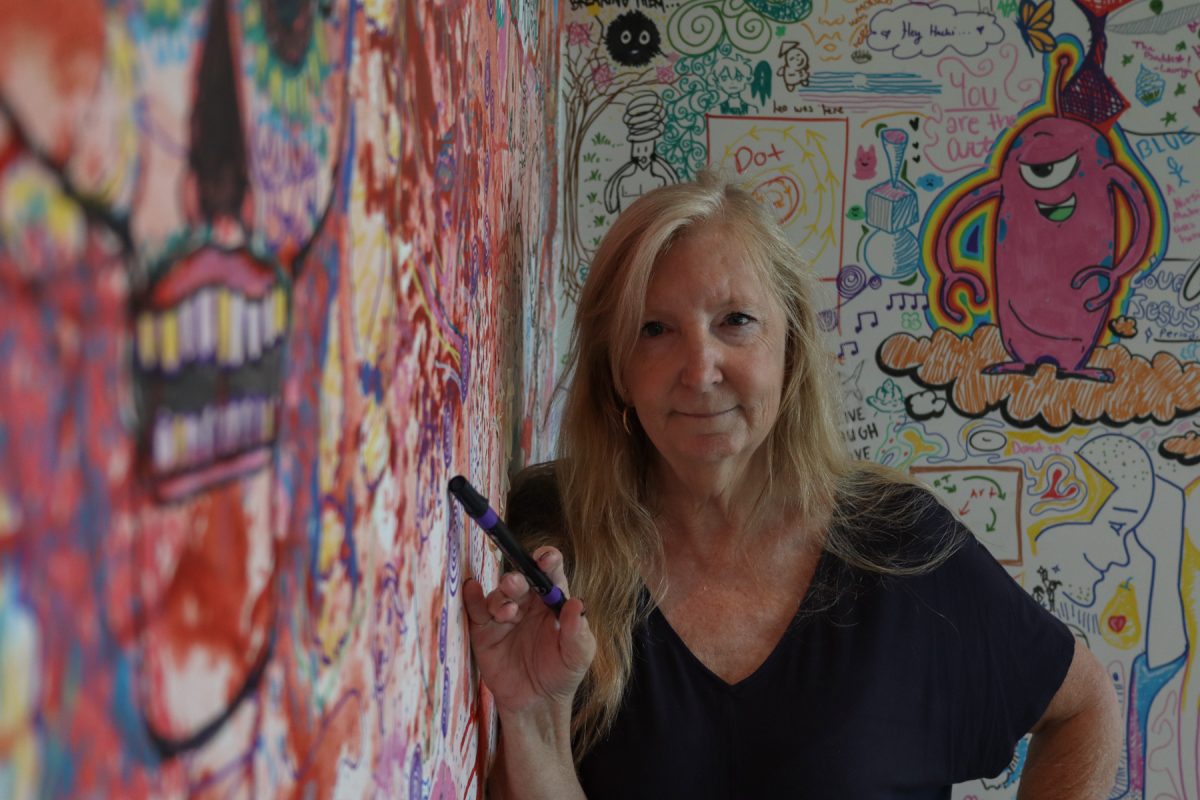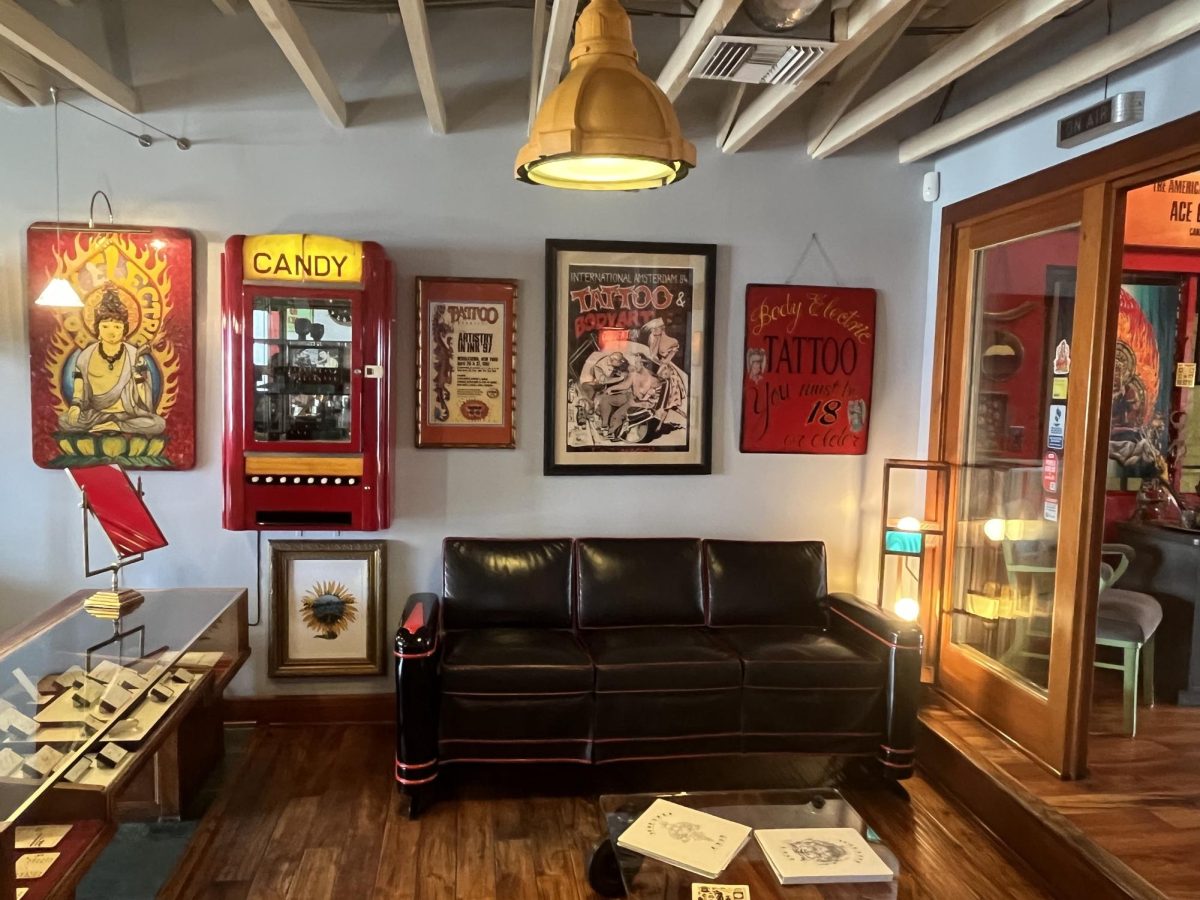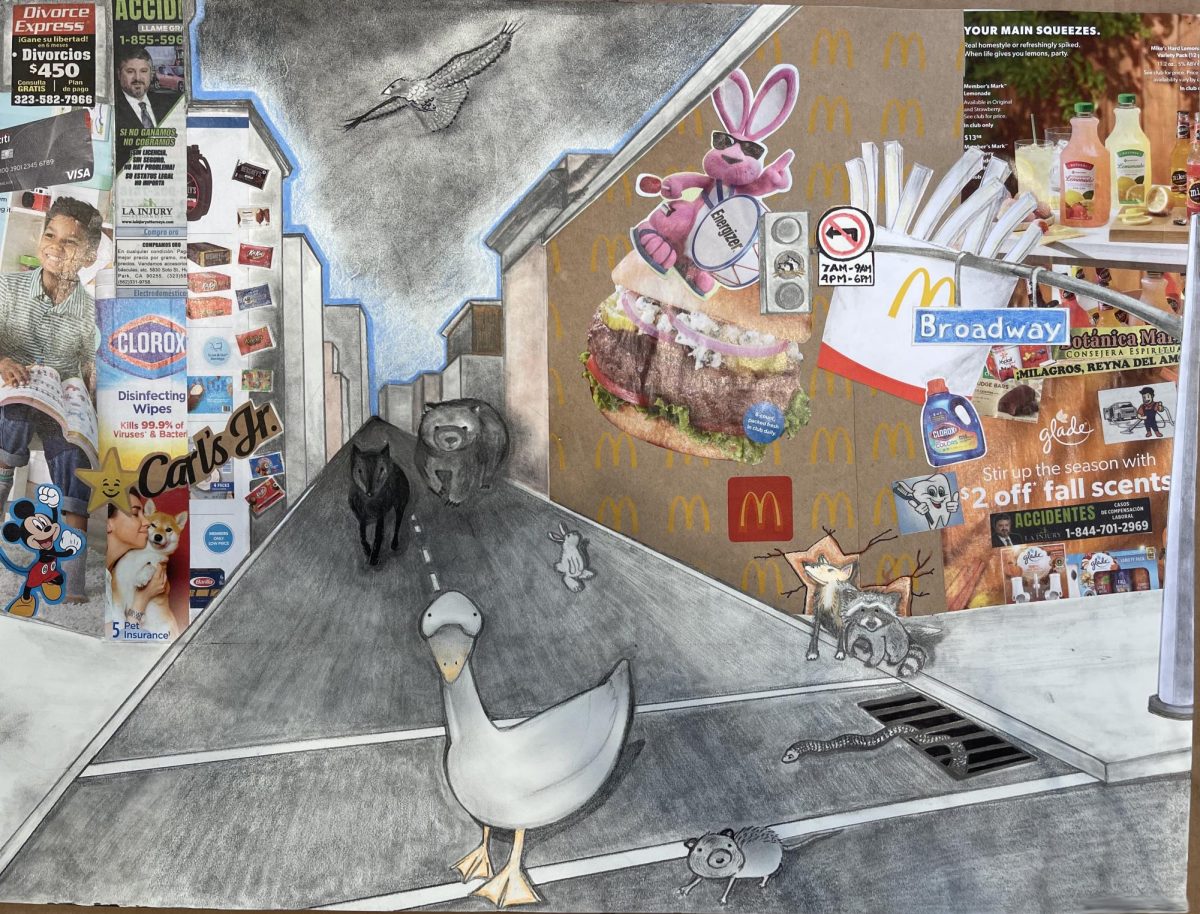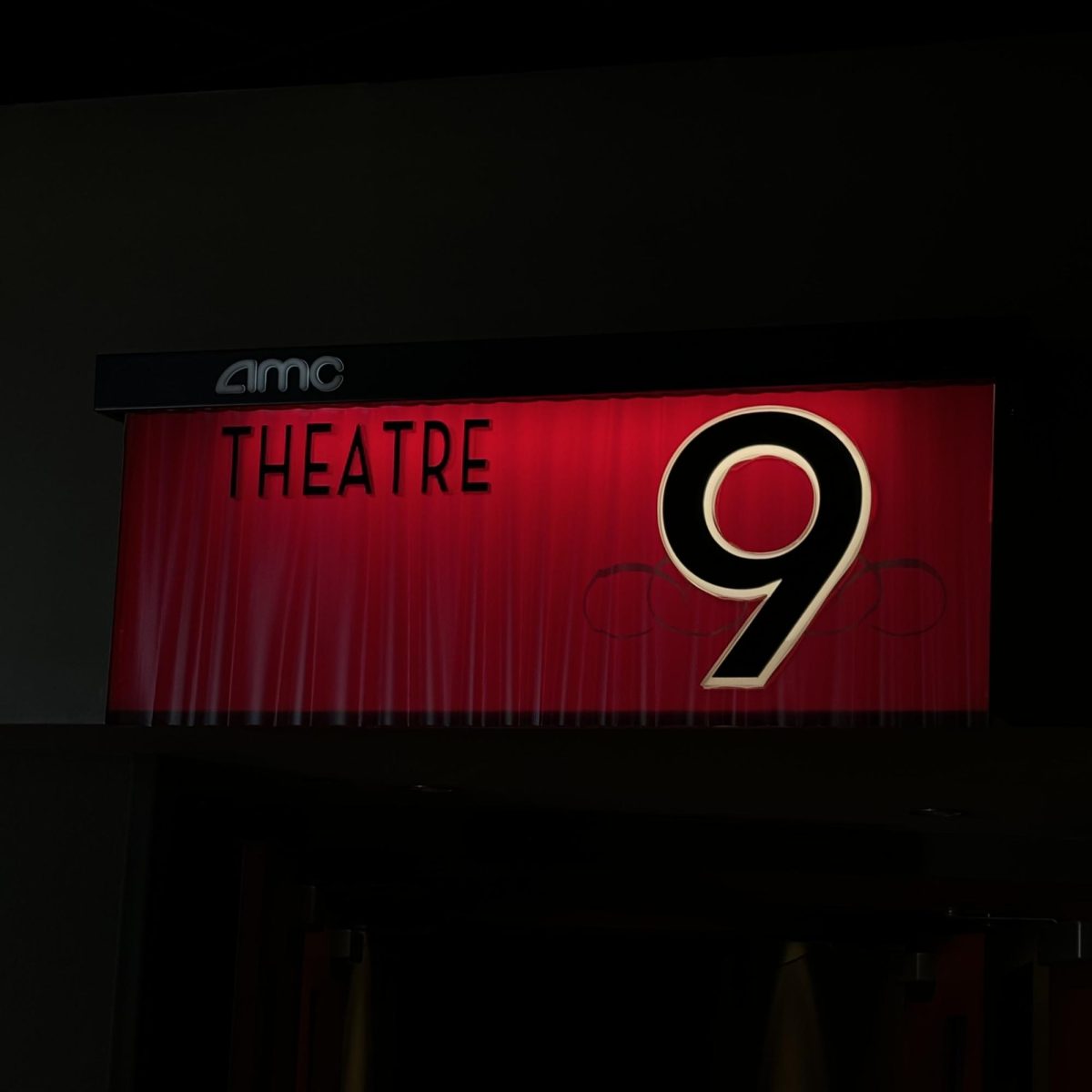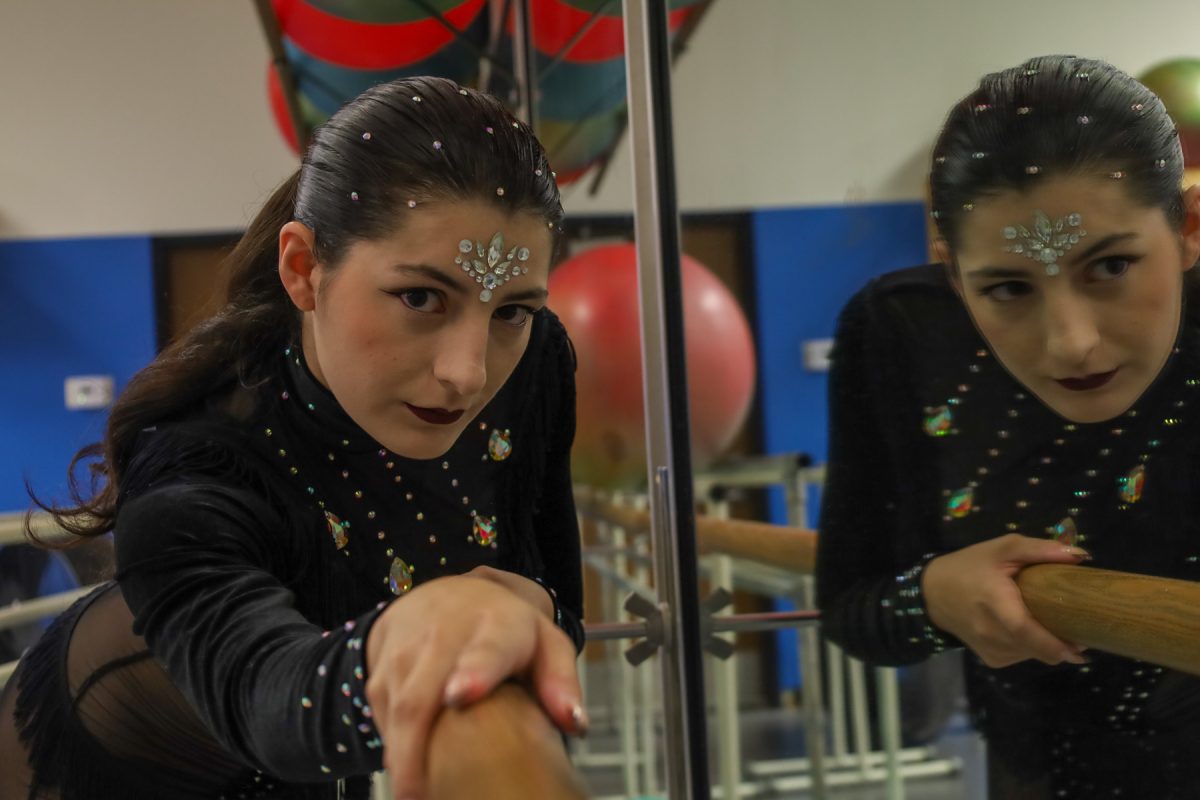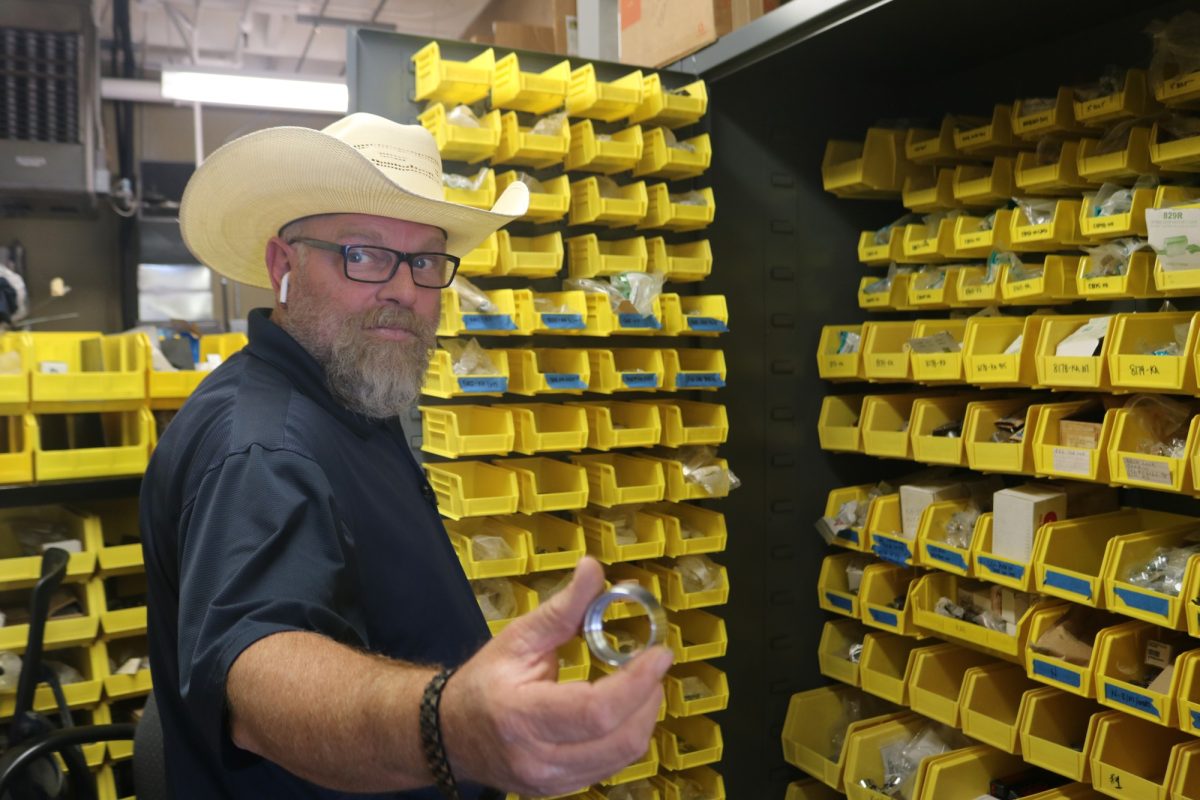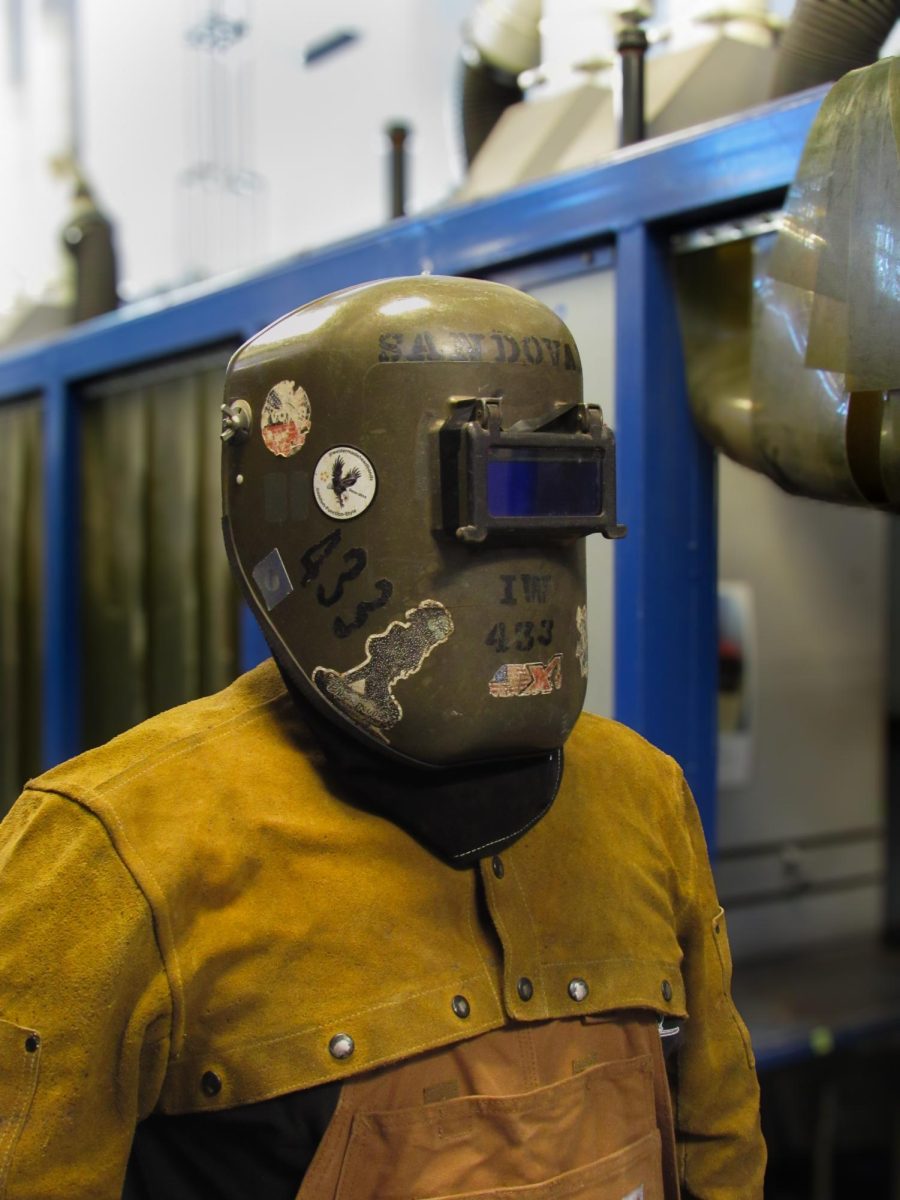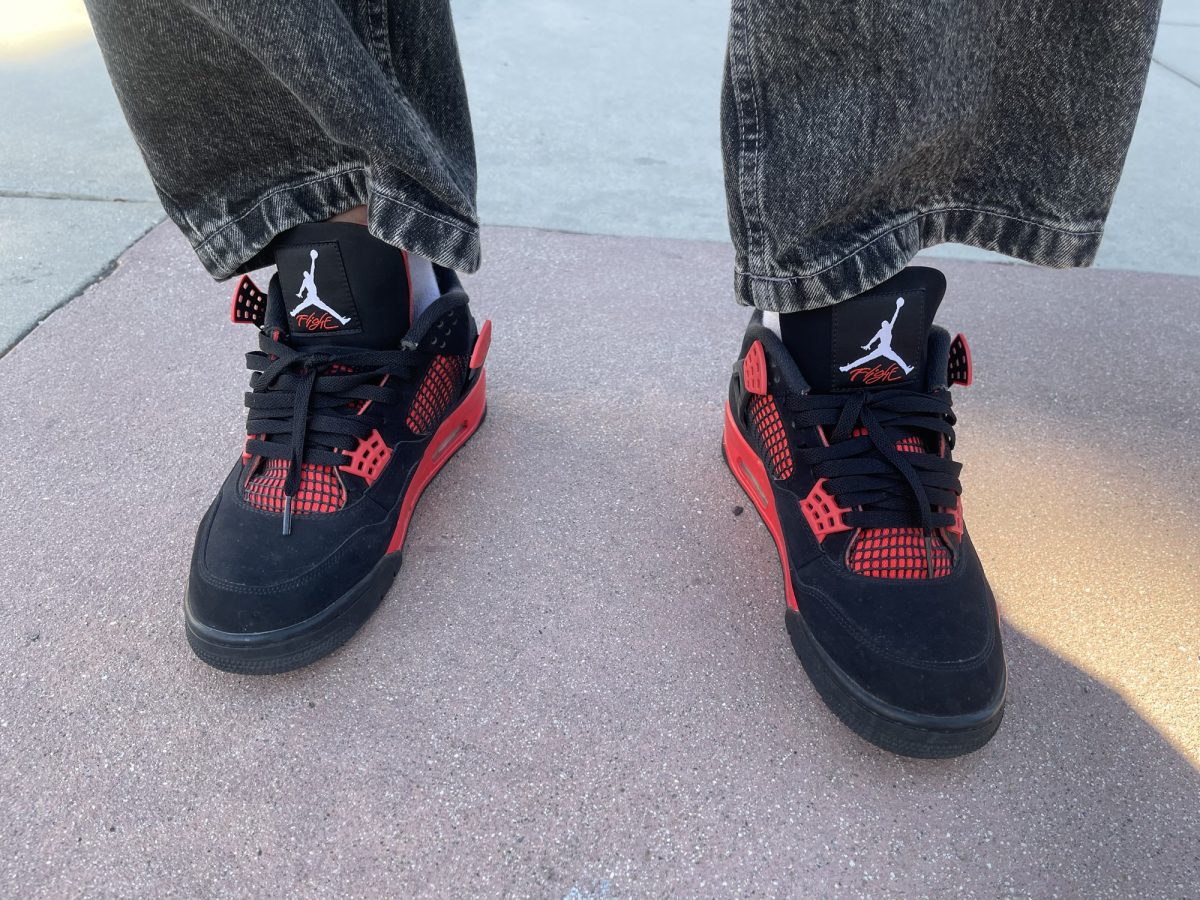1947.
Hollywood released “Miracle on 34th Street,” a sentimental comedy-drama about a department store Santa Claus with an identity crisis, whose case ends up in court.
There is no testimony to whether “Miracle” ever played at the newly-built Park Theatre in Gardena. However, there is evidence that this theater would wrestle with its own identity crisis that would span nearly three-quarters of a century.
For the Park Theatre, a cinema built in December 1946— just months before the 1947 grand opening of nearby El Camino College — having multiple identities would not be cause for alarm.
In fact, new names, owners, marketing strategies, minor make-overs and equipment upgrades would pave the way to the Park Theater’s salvation, not ruin.
Now called the Gardena Cinema and still standing at 14948 Crenshaw Blvd., this majestic walk-in movie theater retained much of its original charm and features: 800 seats, a single 37-foot screen, a small but well-stocked snack bar, twin balconies, two cry rooms and plenty of ambiance of days past.
Unlike other single-screen, independent theaters built before 1950, Gardena Cinema was still showing first-run studio movies at the start of 2020. Always G-rated flicks that cater to families, theater owners say, as an ongoing effort to remain solvent.
The Kim family has owned the Gardena Cinema since 1976 and three family members were working at the theater seven days a week, 52 weeks a year.
Dad John sells tickets, wife Nancy staffs the snack bar and daughter Judy handles everything else from setting up the digital projector and ordering supplies, to securing the next feature film and changing the lobby posters for the then premiering blockbuster, “Tenet.”
Then, with little warning came the plague of the 21st Century.
By January 2020, COVID-19 was spreading throughout the world. It was an airborne virus more terrifying than any mutant monster movie. Suddenly, social distancing became the new normal.
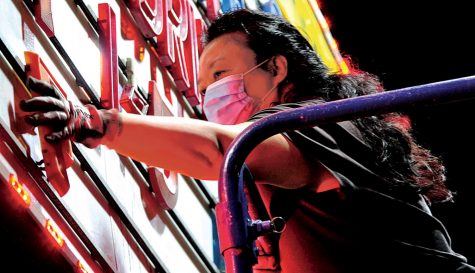
Photo by Gary Kohatsu/Warrior Life Magazine
Businesses were ordered to lock their doors. Citizens were urged to stay home. This new coronavirus was rampaging across continents and in its wake, leaving many people ill or dead.
It took this pandemic and a state mandate to shut down the Gardena Cinema in mid-March. Nobody could blame the theater owners, John Kim, 80, and wife Nancy, 73, from choosing retirement.
As with many non-essential businesses, forced closure to this theater was akin to dropping the lid on a casket.
The following months saw no patrons and no money. Gardena Cinema did not even qualify for small business pandemic relief, the owners say.
Like an old reel of film, the theater was shelved. Its neon lights went dark, its projector silenced, the popcorn machine unplugged and every seat was vacant of life.
“There are extremes, steep up and downs in this business,” Judy, 48, says. “When you make money, you have to save your pennies for when you’re not making any money.”
Her parents were thrifty. For 40 years they tucked away money for a rainy day, she says. But their savings were running dry.
By late summer 2020, many mom-and-pop businesses were in bankruptcy. The Gardena Cinema should have followed them into the abyss of closure — but a curious thing happened.
The Gardena Cinema didn’t die. Judy chose to soldier on despite the financial hardships and her parents’ retirement.
As in the Michael J. Fox classic, “Back to the Future,” the Gardena Cinema turned to the past to salvage its future.
Judy was approached by Alex Martinez, founder of LA Arts Society, about setting up a pop-up drive-in cinema. The GC’s adjacent parking lot would make an ideal drive-in hub and Alex had both the experience and the equipment — including an inflatable screen — to show outdoor movies at a moment’s notice.
It seemed that drive-in movie viewing was making a fashionable comeback during the pandemic. Movie pundits might call this a fresh take on “the suspension of disbelief.”
Since indoor theaters were still locked down, Judy agreed to Alex’s proposal.
In August, just as neighboring El Camino College was opening with distance learning for the fall, the Gardena Cinema was adjusting to its own version of social distancing by transitioning (for now) into an outdoor drive-in theater.
The opening week’s movies for the parking lot venue featured the concept of being Big. Alex chose four movies of which Judy promptly booked: “Pee Wee’s Big Adventure,” “Transformers,” “Jurassic Park” and “Jaws.”
“Somebody said to me, ‘why should I come out for ‘Jurassic Park’? I can get that on TV,’” Alex says. “I said, ‘because it gets people out of the house. They get a new experience in a safe environment. That’s why ‘Jurassic Park’ sold out’.”
The outdoor arrangement fills a need until she can return to in-theater movies, Judy says.
Margot Gerber, a board member of Hollywood Heritage who has worked with historic theaters for more than 20 years, says that large walk-in cinemas could prosper during the pandemic.
“Larger theaters have the advantage because cities are telling (operators) they can open at a reduced capacity,” Margot said in a phone interview. “The bigger theaters can socially distance but have more people. That’s the advantage over multiplexes.”
Judy is the guardian of two pillars of personal devotions.
On one shoulder of Judy’s 5-foot high frame, she balances her parents’ welfare and declining health. On the other shoulder rests their beloved theater, with its vast history and uncertain future.
Just labors of love, she says with an easy smile.
This is a woman who follows no set routines, yet her days and nights are filled with routine duties. Everything in her life seems to run in a continual loop.
She arrives at the theater around 5:30 p.m. on a Wednesday, her day off. At least no film showings are scheduled for the evening.
Judy’s chocolate brown eyes peer above a blue face mask. She studies a 16-inch laptop monitor; tracking data, booking movies, exchanging emails, checking the security cameras, posting on social media and securing doctor appointments for her parents.
Once on her feet, Judy seems to walk, talk and work in syncopation. Bouncing from task to task like a human tennis ball. Her wind-blown black hair tailing in a ponytail.
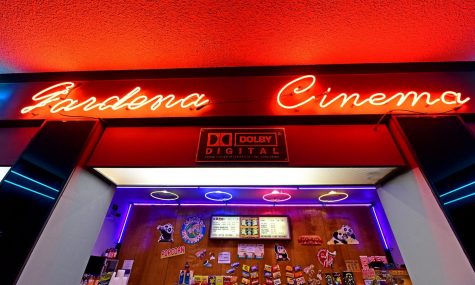

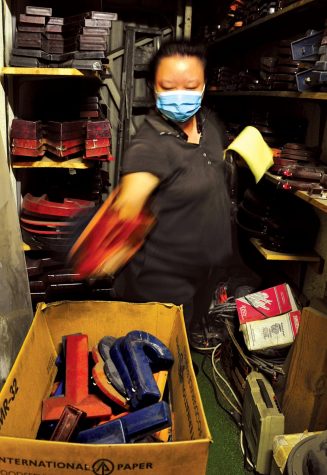
By 9 p.m. she has finished for the night . . . almost. The marquee outside needs changing to the weekend’s movies.
Judy gathers acrylic Snap-Lok letters from an upstairs storage room. Then she motors a huge, gas-powered scissor lift from inside the building to outside the cinema. With no noticeable fear of heights, she cranks the lift 15 feet high to press letters to the marquee, spelling out the coming attraction: “Beetlejuice.”
“My Dad used to whack the letters [onto the marquee] with a Wagner hand pole,” she says. “But I don’t have the upper-body strength. The scissor lift was a good investment.”
Judy speaks with clarity whether in casual chit-chat or laying down the law. She is by the way, a 2003 graduate of Loyola Law School in LA.
Her philosophy is to stay clutter-free.
“I live a simple life,” she says unapologetically. “I always follow stoicism. I already have so much burden as it is.”
She is not a woman who wastes time in front of the mirror; no make-up, no jewelry, no time for vanity.
Judy’s daily attire is deliberately spare: everything in black. A short-sleeved shirt, jogging pants and comfortable loafers.
“Black, because I come from the theater,” she says. “We wear black to be less noticeable. Beside, you can always upscale black to make colorful.”
She allows for some diversity in dress. Her socks are gray and in one ear, she has a Bluetooth. Functional, if not fashionable.
A life of zero waste entices her but for now, it’s not a practical option, she says.
Judy was married once and divorced. She spent time in the TV industry working in development, but quit to support the family business. She had her own apartment, which she shared with a friend. But in 2019, she moved back to her parent’s Gardena home.
Both parents make regular doctor or hospital visits, she says. Her father has lost sight in his left eye and her mother has endured two surgeries for uterine cancer. Judy has become their caregiver, she says.
“I think of myself as a familial daughter,” she says. “I live for my parents. They were happy to have me back at home.”
When L.A. businesses likely reopen in the new year, Judy says she wants to return to Gardena Cinema’s roots as a walk-in theater.
After all, this movie palace’s best asset is its historic past, as noted in the blogspot Los Angeles Theatres.
The former Park Theater’s origins date back to the post-World War II era. The building was constructed by C.F. Normberg, a noted architect of schools across the country. Through the 1950s, the Park operated as a second-run venue under the M&M Enterprises banner, with co-owner Harry Milstein running the operation.
Cinematically, the Cold War era of the ‘50s gave oxygen to low-budget Science Fiction flicks, which were creations of science, exploitation and fears of nuclear war, as chronicled by websites such as Golden Age of SciFi.
Among the ardent Saturday matinee patrons was Don Dear, who would later serve as a Gardena councilman and mayor starting in 1970. Dear says he grew up in the North Torrance-Gardena neighborhoods of the 1940s and ‘50s.
As a young boy, he fondly remembers the Park Theatre and other local movie houses.
“I was about 11 when I saw ‘The Thing (From Another World),” Dear, 80, says of the 1951 Howard Hawks’ Science Fiction classic. “A little girl sitting behind me told me to please sit up straight, so she could hide behind me. It was a very scary movie.”
Joe and Mary Donato eventually took ownership of the business circa 1960, presenting double features, including Elvis movies and schlock horror films for years before selling the business in 1976.
Judy says her parents were married in 1970 and immigrated to the United States in 1971 from Kwangju, South Korea.
As a young girl growing up in the 1950s, Nancy had a wealthy friend whose dad owned a movie theater, Judy recalls her mother often saying.
“That friend would invite everybody to watch movies at their theater,” she says. “My mom thought that was the coolest thing.”
Nancy dreamed of owning a cinema of her own. Husband John took note of her wish.
When the Park Theatre was listed for sale in the mid-1970s, John, an electrical engineer by trade, and Nancy couldn’t resist making an offer. They were to endure a long escrow period while learning the theater business from Joe Donato, Judy says.
“Before buying, my parents often would park across the street from the theater,” she says. “They would just sit in the car and scope out the place.”
During this time, the Donato’s raised the selling price of the theater and the Kims were faced with dropping out of the purchase.
“But my Mom told my Dad, ‘I will eat one less meal a day to close escrow,’” Judy says.
Not long after, the Kims secured the theater to Nancy’s delight.
“My mom is not a cinephile,” Judy says. “To be honest, she’s not a good movie watcher. She always falls asleep during the movie.”
But the purchased theater which sits on one acre of property did not include the adjacent parking lot, Judy says. That became a nagging worry.
Her dad worked at several jobs, simultaneously, to provide for his family and to save money for their first business venture, a Mexican market in Colton, Judy says.
After securing the Theater, the Kims sold the market to their box boy and relocated from the San Bernardino County to the Los Angeles suburb of Hawthorne.
Within one year of theater ownership, the family noticed the active Latino community in their neighborhood and renamed the Park Theatre, Teatro Variedades.
Judy says her parents understood the plight of Mexican immigrants and sought to fill a need in terms of cash-only entertainment.
The family worked with Mike Enriquez, a local businessman who would serve as their buyer of Mexican films.
During the late 1970s and into the 1980s, showing Spanish-language films was very profitable for the Kims. About this time, a promoter of live Mexican entertainment rented the theater for variety stage acts.
Live dance shows and singers became a Saturday afternoon staple.
Teatro Variedades was drawing such huge crowds on the weekends that John Kim had to build a steel barrier at the theater’s front door that would allow only one patron to enter at a time, Judy says.
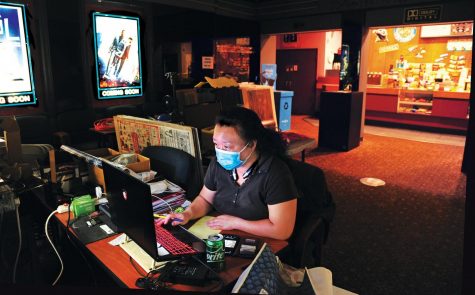
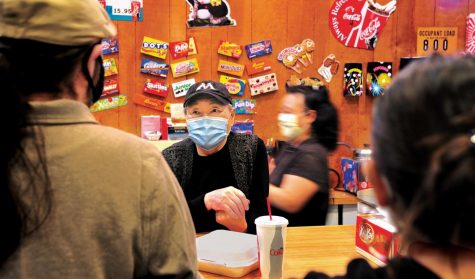
Her dad would initially sell more tickets than available theater seats and got a visit from the city of Gardena fire marshal, who told him to cut it out or get slapped with a fine.
Sometimes patrons would come to the theater intoxicated. John Kim, who stood a sawed-off 5 feet 6 inches and weighed 180 pounds was the theater’s only means of security.
“Some guys would want to mess around with my Dad,” Judy says with a chuckle. “My Dad is a black belt in Tae Kwon Do to the ninth degree. He’s like a little whale. One time this guy attacked my Dad. He had to flip the guy. I don’t think my Dad was afraid of anything, not even knives and guns.”
Judy says her mom worked the concession stand during performances. She would hire young, pretty Mexican girls to help sell snacks and to work in the ticket booth.
“Guys would come for the girls and not even watch the movie,” Judy says. “When the movie ended, my Dad would say, ‘you have to buy another ticket or leave.’ So they would buy another ticket and keep talking to the girls.”
As soon as their shift ended, Nancy noticed the girls would pile into the bathroom and get “all dolled up” to go dancing, she recalls her mother saying.
In the late 1980s, the Kim’s Mexican film distributor went out of business. The family abandoned the Spanish-language film market and in the mid-1990s and leased the theater to a Korean distributor. The theater name was changed to “Eden” and then “Morning Calm,” but Korean movies proved too tough a sale.
Judy, who studied government and theater at Smith College in Northampton, Massachusetts from 1990 to 1994, returned home to help her parents. By 1996, the family was facing financial disaster.
They made a few key decisions, including changing the theater name to Gardena Cinema.
“We have no imagination,” Judy says.
They also decided to show first-run Hollywood movies.
“We lost our house, so we put everything into keeping the theater,” Judy says. “We [consolidated] the equity from all properties we owned.”
Entering the new millennium, the Gardena Cinema featured such popular Hollywood releases as Mel Gibson’s “The Passion of the Christ”, “Selena” and “Pokemon.”
Judy says her mom has been the family’s social butterfly. Nancy loved interacting with the customers and loves “shoot em, up movies — when she can stay awake,” she says. Nancy’s favorite film is 1997 action spectacle “Face/Off,” starring John Travolta and Nicholas Cage.
“One time we were showing this really good Geena Davis movie,” she says. “My mom would promote it by telling everybody, ‘Come back for a ’Long Kiss Goodnight’.”
During the Great Recession in 2009, Judy’s younger brother Ray moved to South Korea looking for work, today he teaches English, and had been the Gardena Cinema’s projectionist.
By 2013, the family shelled out $150,000 for a digital projector to replace the classic reel-to-reel film projector. Judy says it was a great investment because the digital version can be programmed to operate independently.
Earning a law degree was specifically to help her family, Judy says. She believed her parents were too often victimized in the business world. Foremost on her mind was to secure the future of the Gardena Cinema.
She says 70 years ago, the adjoining parking lot had been sold separately from the theater. Today, a splitting of such commercial property is illegal.
“For many years I knew that the parking lot needed to be acquired for the survival of the theater,” Judy says. “I went to law school to strategize on getting that property.”
The first step was convincing the parking lot owner to give the Kims a right of first refusal on the property, Judy says. Later the lot owner attempted to rescind that offer.
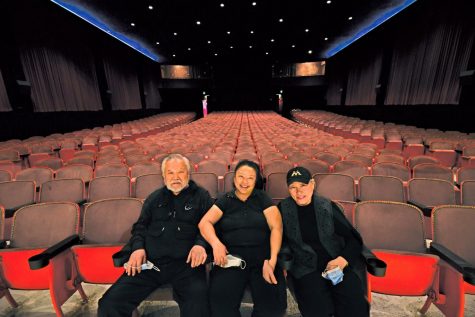
In 2016, the Kim’s won a court case for the rights to buy the parking lot, which is on the north side of the theater. A small miracle, Judy says with a chuckle.
“It was a long battle,” she says. “I told my parents that my goal was to get the parking lot. Now I can die. I’ve accomplished my life goal.”



